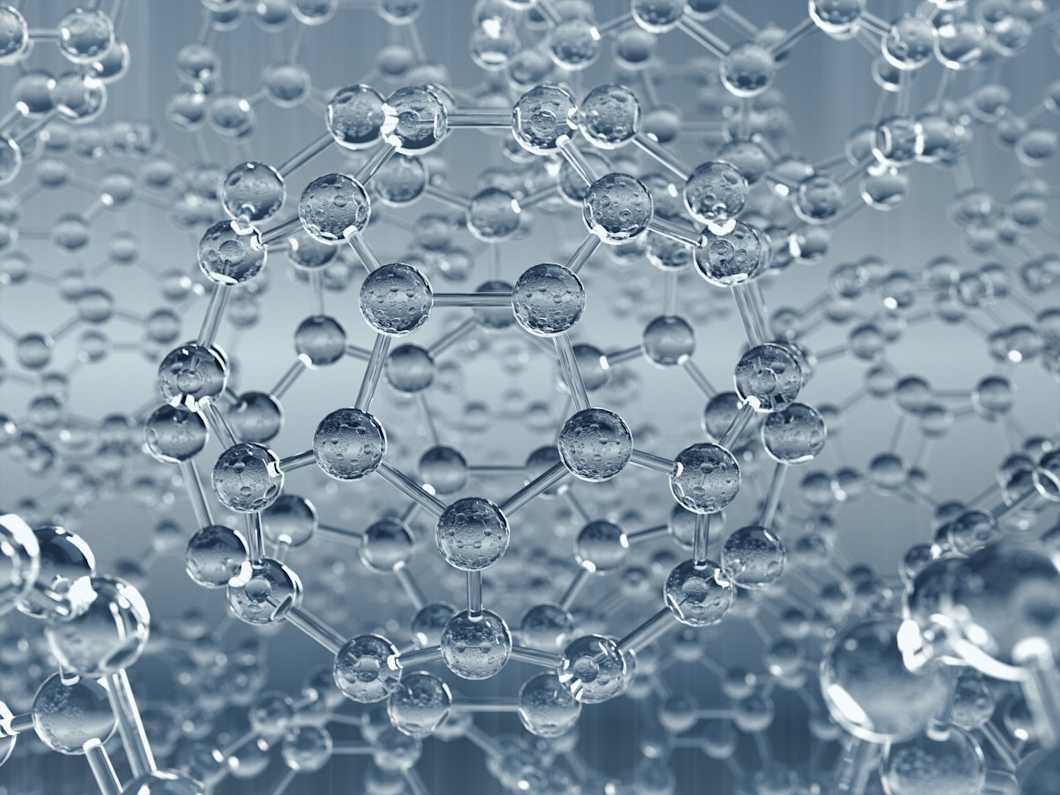SEC-MALS analysis
Size exclusion chromatography with multi-angle light scattering (SEC-MALS) is a technique used to separate and analyze macromolecules based on their mass, size, and shape. SEC-MALS analysis provides a useful way of dealing with large molecules that are conventionally difficult to characterize and is therefore used across the fields of biological and material science.

Some of our SEC-MALS services
SEC-MALS of high molar weight polymers
Molecular weight of polymers with GPC/SEC-MALS
Molecular weight of UHMW polymers with AF4-MALS
Prices excluding VAT.
What is SEC-MALS used for?
SEC-MALS is primarily used to determine the spread of different molecular weights in a solution and is therefore mostly used with large macromolecules. These might be in the form of biomolecules, such as proteins, or high-molecular-weight polymers.
SEC-MALS helps determine molecule sizes, shapes, and conformations, making it an essential technique in the biopharmaceutical and medical fields. The method is also used in polymer characterization to determine the various molecular weights of the polymer chains, which gives insight into the progression of reactions and provides information on how molecular weight impacts the physical properties and applications of industrial polymers.
How does SEC-MALS analysis work?
SEC-MALS analysis begins by passing the solution through a chromatography column, which acts as a molecular filter and hinders the movement of the solution. This causes the individual components in the solution to be separated according to various factors, such as their physical size and molecular weight.
As the components leave the column, they are exposed to a laser. Upon passing through the sample, the light from the laser is scattered and picked up by a detector. The intensity of the scattered light is directly linked to the weight of the molecule and can, therefore, be used to accurately determine the different spreads of molecular weights in the molecules. Through further calculations, this data can also provide information on things like levels of branching, conformation, and conjugation in the molecule.
Sample requirements and preparation
SEC-MALS is performed in a solution; therefore, any solid sample matter is dissolved in a suitable solvent appropriate for the column. Some samples, especially biomolecules, may need an additional buffer solution, which must be matched with the column. Large particulates can block the column, so solutions may need to be filtered to ensure they are free of solid debris before analysis.
Advantages and limitations of SEC-MALS analysis
The main advantage of SEC-MALS is that it can interpret a wide range of different molecular masses, which means it can be used to analyze even some of the largest macromolecules. This makes it stand out compared to conventional techniques, which historically struggle with very large molecules. It can also be used to provide additional information, such as conjugation, levels of branching, and stoichiometry, all things that cannot be measured with SEC alone.
The main limitation of SEC-MALS is its inability to easily distinguish between molecules of the same size. This makes it difficult to analyze some oligomers or isomers with very similar sizes. Furthermore, to achieve the best separation, it is sometimes necessary to run several columns in succession to determine the best flow characteristics and calibrate the system accordingly. This trial-and-error operational style can sometimes lead to relatively long processing times.
Need an analysis?
Measurlabs offers laboratory testing with SEC-MALS for biopharmaceuticals and polymers. With fast turnaround times, advanced instrumentation, and personalized support from experienced method experts, we ensure you get accurate and reliable results to support product development and quality assurance. Contact us using the form below to get started.
Method Expert
Suitable sample matrices
- Proteins
- Biochemical aggregations
- Pegylated molecules
- Polymers
- Polymerization mixtures
Ideal uses of SEC-MALS
- Determining average molecular weights of polymers
- Monitoring the reaction progress of polymerization
- Determining molecular masses of biomolecules
- Measuring conjugation in biochemical systems
- Analyzing levels of polymer branching
Ask for an offer
Fill in the form, and we'll reply in one business day.
Have questions or need help? Email us at info@measurlabs.com or call our sales team.
Frequently asked questions
SEC-MALS is often used to analyze the physical properties of large macromolecules, like proteins and polymers, in the fields of biological and material science. It provides a wide range of information from molecular weight and size to branching properties and conjugation.
As SEC-MALS separates molecules by size, it may be difficult to analyze similarly sized analytes. The apparatus also requires time-consuming calibration.
Measurlabs offers a variety of laboratory analyses for product developers and quality managers. We perform some of the analyses in our own lab, but mostly we outsource them to carefully selected partner laboratories. This way we can send each sample to the lab that is best suited for the purpose, and offer high-quality analyses with more than a thousand different methods to our clients.
When you contact us through our contact form or by email, one of our specialists will take ownership of your case and answer your query. You get an offer with all the necessary details about the analysis, and can send your samples to the indicated address. We will then take care of sending your samples to the correct laboratories and write a clear report on the results for you.
Samples are usually delivered to our laboratory via courier. Contact us for further details before sending samples.
